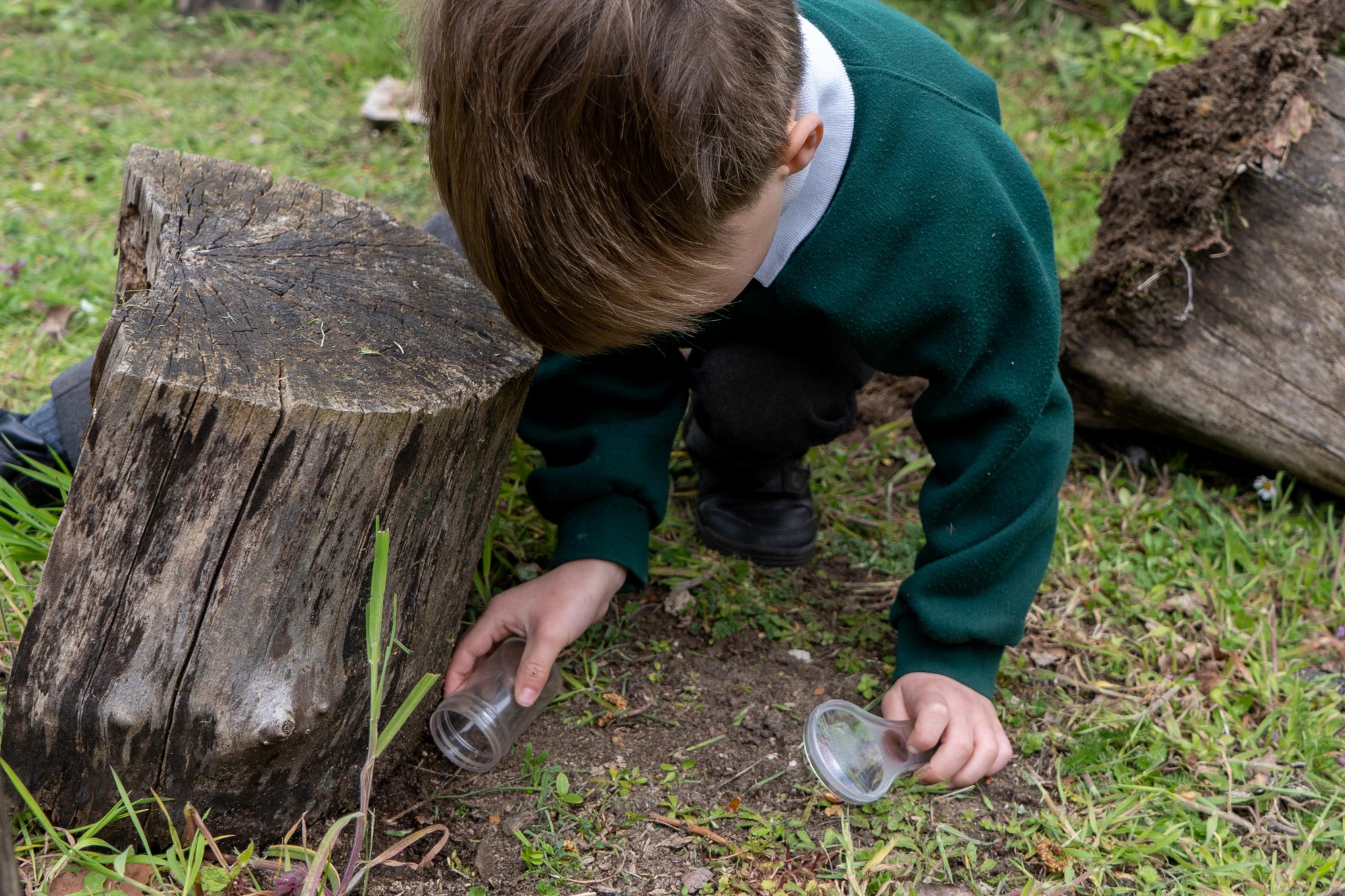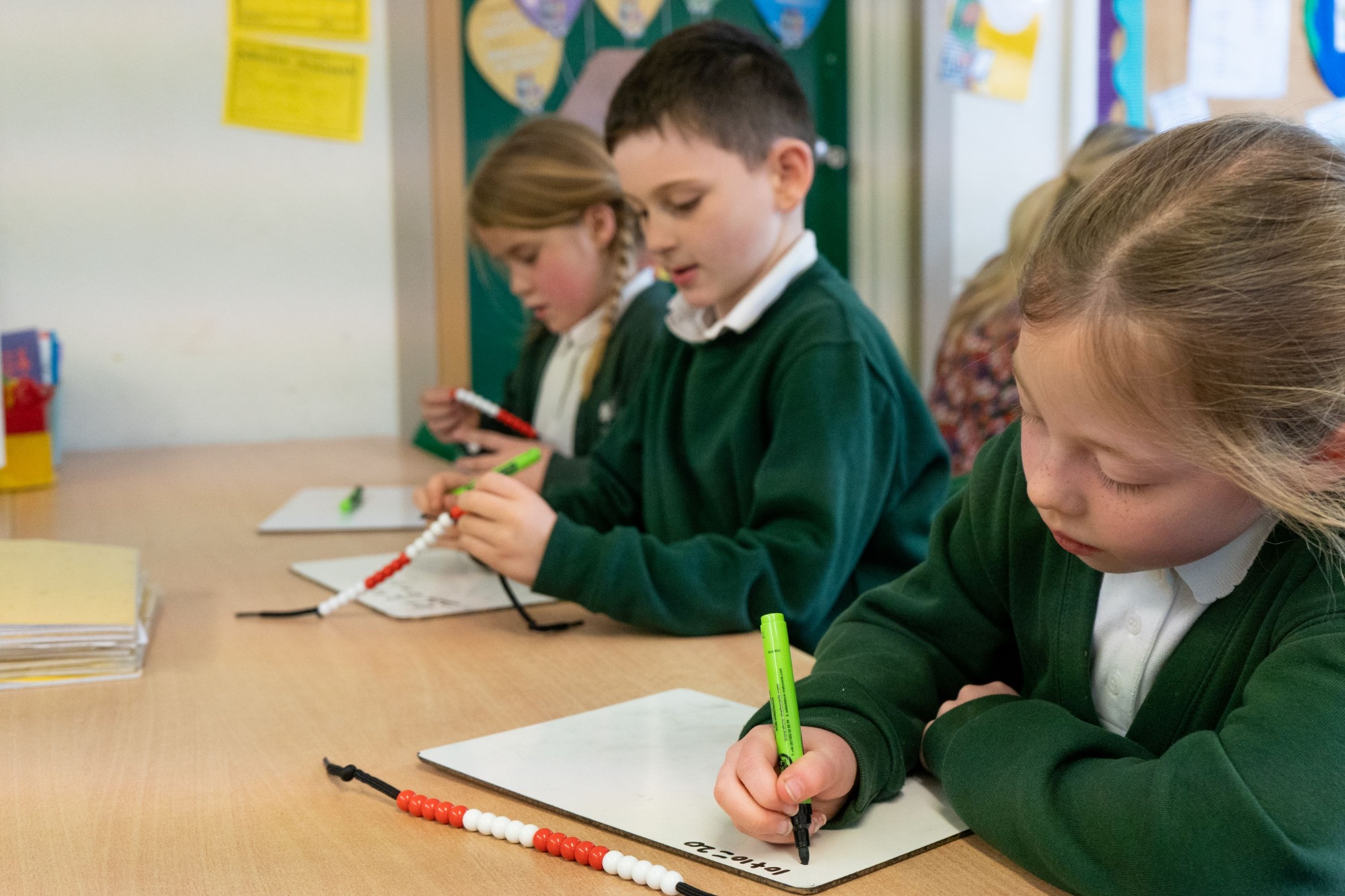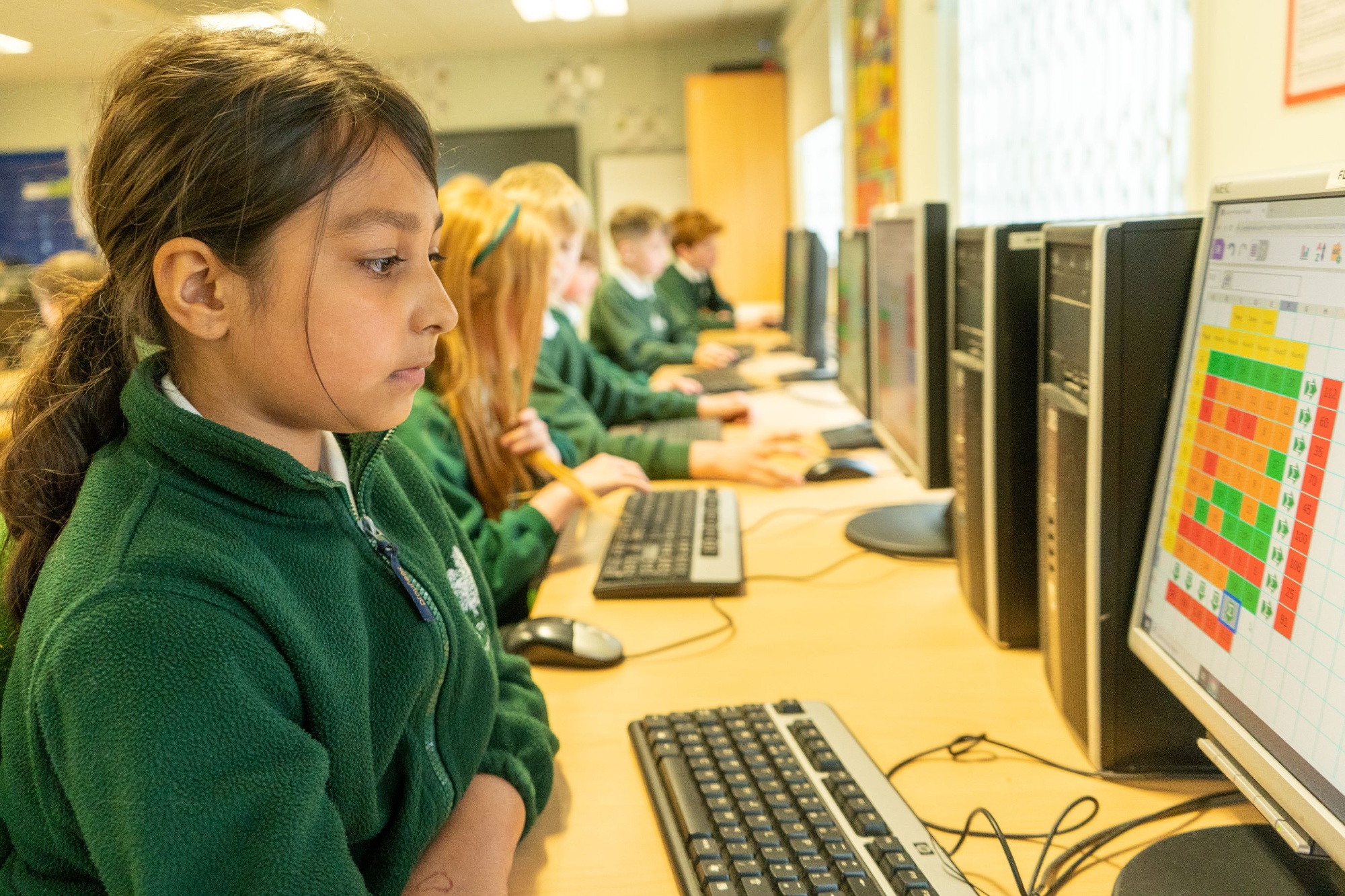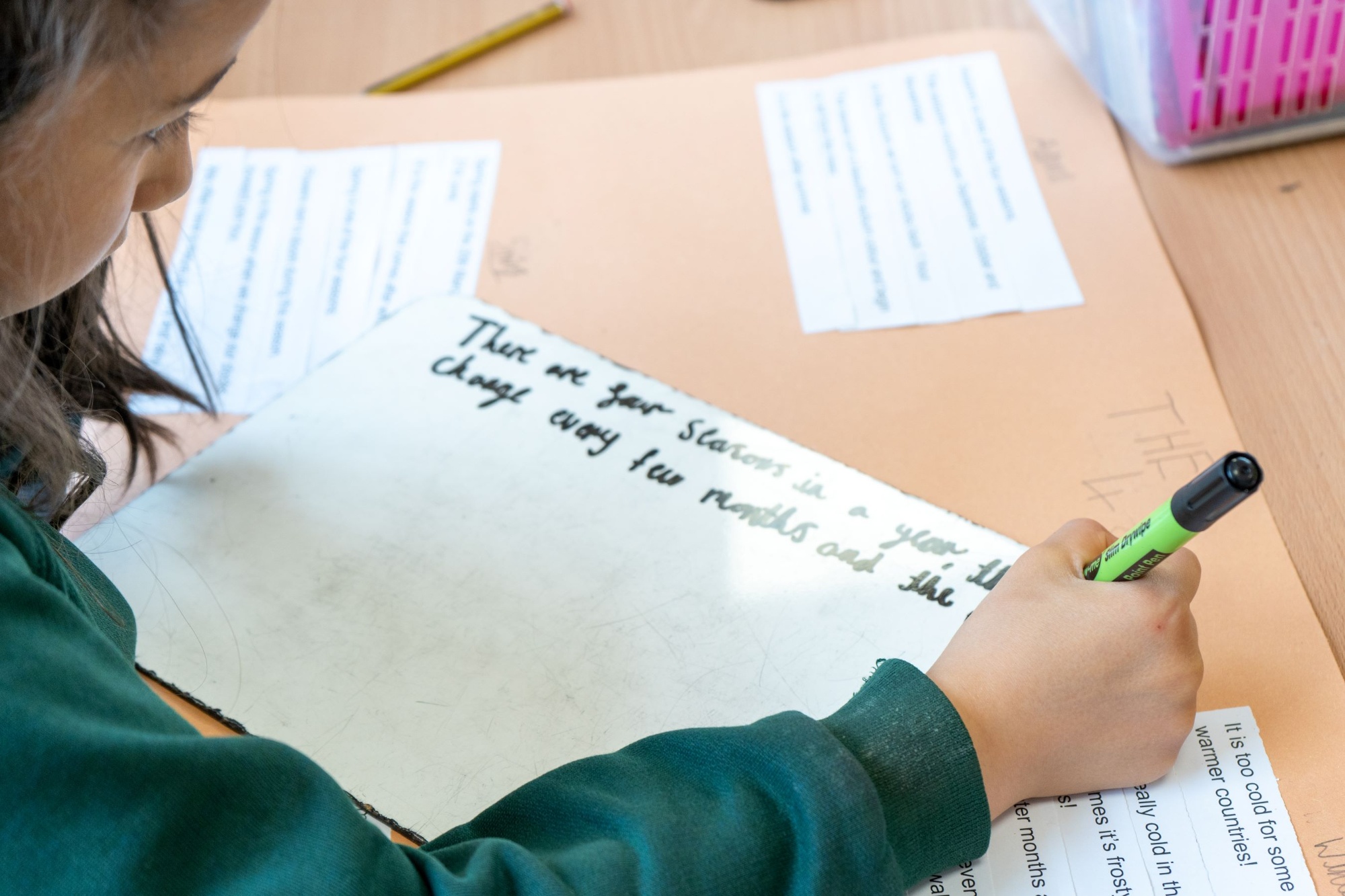Assessment
Assessment in Year R
The Firs uses a baseline assessment to develop an accurate picture of where a child is with their learning in key areas of the Foundation Stage curriculum. This helps us to ensure that the learning in Pine is accurately tailored to children’s needs.
Staff use ‘Development Matters,’ age banded descriptors, to monitor children’s progress in YR, using all the evidence collected through observations during the year. Observation evidence is recorded using the online 'Tapestry' database which builds the children's 'Learning Journey', sharing it as it happens with parents, who can log on to see what their child has been doing and learning. Staff are pro active however and as well as recording observations they are constantly looking for 'teachable moments' where they can intervene in children's play to move their learning on.
At the end of the year, children’s attainment is assessed against the Early Learning Goals which are set out as part of the Statutory Framework for the EYFS. This assessment is shared with the parents at the end of the year.
Year 1 Phonics Test
In the summer term children in Year 1 take the National Phonics Screening Check. This test looks at children's ability to use a phonic approach to read a list of real and ‘nonsense’ words. The test has a pass mark (determined by the government each year) and the results are shared with parents at the end of the year. (Children who do not achieve the pass mark in Y1 are re-tested at the end of Y2 and the results of this assessment are also shared with parents).
Year 2 SATS
Standard Assessment Tasks (SATs) are administered in year 2 (the end of National Curriculum Key Stage 1). Their purpose is to give an indication of each child’s performance. Children are assessed in writing, reading and comprehension and maths. Speaking and listening skills and scientific knowledge are also assessed by the teacher. The assessments are made against the Y2 Assessment Framework. The Firs chooses to administer these assessments at the end of the year, to support the evidence from children’s work, which the teachers use (like their colleagues in every year group) to arrive at a judgement concerning each child’s attainment.
Year 4 Times Tables Check
Children all take the National Y4 times tables check in the summer term and the results are shared with parents.
Continuous Formative Assessment Y1-Y4
A system of continuous assessment, both formal and informal, is used to monitor pupils’ progress throughout the school. The information obtained provides a basis on which the teacher will plan appropriate programmes of work. It also enables us to identify any areas where further support might be needed, to ensure that every child is achieving their best.
The Firs is using the ‘Rising Stars’ progression framework which provides a comprehensive list of objectives to plan learning, based on the National Curriculum programmes of study for Y1,Y3 and Y4. The ‘Key Performance Indicators’ (KPIs), a chosen key selection of these objectives, are used to assess and make judgements concerning the attainment of individual children. This information is then updated by teachers and tracked throughout the year, with the aim of ensuring that by the summer term, all of the KPIs have been achieved for that year. This is the ‘expected standard’ at the end of each year.
In Year 2 all schools have to follow the Y2 assessment framework produced by the DfE. This provides objectives, based on the National Curriculum that, in the same way as the KPIs, children have to achieve, to be meeting the 'expected standard'.
Reporting Judgements At The End Of The Year
At the end of the year, we will report if each child is 'working towards' (WTS) the expected standard, is at the expected standard (EXS) or is working at Greater Depth within the standard (GDS).
In Y2 if children are not at the expected standard they may be at the PKS or Pre Key Stage Foundations of the standard or just below or 'working towards' the standard. (WTS)
To be at the ‘Expected standard’ (EXS) they need to have achieved all of the KPIs / Y2 Framework objectives and to be GDS they must be able to apply their knowledge in a more sophisticated way, perhaps using their knowledge to solve problems in different contexts within the standard for their year group.
The table below sets out the key assessment terminology used by the school:
|
Assessment Terminology |
||||
|---|---|---|---|---|
|
Assessment against objectives |
Working towards standard / end of year expectations |
Expected - Met 100% of KPIs /Y2 statements– (Achieved standard for that year) |
GDS - Met 100% of KPIs (and working in a more complex way) / met 100% of Y2 GDS statements
|
|
|
Year 2 (Y2 framework) |
‘Pre Key Stage (foundations for standard) (PKF) |
‘Working Towards the Standard’ (WTS) |
achieved the EXpected Standard (EXS) |
working at Greater Depth within the Standard (GDS)
|
|
Year 1, 3 and 4 (KPIS) |
‘Embarking’ |
‘Emerging’ |
achieved the EXpected Standard (EXS) or ‘Secure’ |
working at Greater Depth within the Standard (GDS) Can be divided into 'Enriching' and 'Exceeding' |
The Government expect each child to be able to use their skills and knowledge in a wide range of activities and contexts. Therefore our focus is on providing a broad, creative and challenging curriculum, where each child has the opportunity to consolidate their learning within their own year group before moving on.
Information for parents
In the autumn term consultation meetings are held to enable parents to see children's work and staff to meet each other and begin to development the important relationship which will allow home and school to work in partnership to promote each child’s learning.
In January, parents receive an interim report to give a summary concerning children’s attainment and effort over the autumn term.
In the spring term there are parent / teacher consultation meetings, where there will be an opportunity to view children’s work and discuss their progress and attainment and any strategies to give children further support or challenge, to ensure they are achieving well (and in Y1-Y4 if they are on course to achieve their end of year targets.)
The autumn and spring term meetings are important opportunities to meet and discuss children’s progress but we always stress however that if parents are concerned about their children, for whatever reason, they are welcome to come in and talk with the class teacher.
Towards the end of the summer term, all parents are given a written report about their child’s attainment and progress over the year. This report also reflects on them as an individual and the contribution they have made in other areas of their learning.
The Firs uses an online data management program to record pupil assessments and to analyse pupil performance data. The attachments below however are the paper versions of the ‘Rising Stars’ framework for Years 1-4, which we have included here, so parents can see the objectives that govern the teaching programme we follow. Also attached below are the KPIs, produced by the National Association of Headteachers (NAHT) which are the key objectives that have been chosen, to assess the attainment of each child at the end of Y1 / Y3 / Y4 and the Y2 Framework document produced by the DfE.
Assessment data for The Firs, including reading and writing is available on the Achievement Page of our website.




